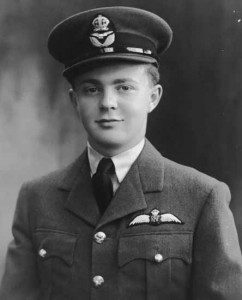
By the last week of February, Flight Lieutenant Tony Pengelly had been a POW in the German military prison system for three and a half years. Shot down in November 1940 and imprisoned first at Stalag Luft I (at Barth, Germany) and then transferred to Stalag Luft III (near Sagan, Poland) in 1942, Pengelly had graduated from escape committee member-at-large to leading a forgery section. But since he also handled the distribution of Red Cross parcels, Pengelly took on the added duty of using the premium items in the parcels to bribe German guards.
First step, Pengelly said, involved chatting up the guards, comparing family snapshots and exchanging pleasantries. When the Canadian pilot knew his prey might soon be going on leave, he might offer the guard some coffee (something most Germans hadn’t enjoyed since 1936). To further bait the hook, Pengelly might offer some chocolate for the guard’s children. Often that gift drew the offer of a favour from the guard.
“Can I bring you anything from outside?” the guard might ask.
“Yes, if you don’t mind,” Pengelly would say. “I’d like a hundred toothpicks.”
Something that inconsequential would be sufficient the first time, but it was oil for the machine With each trip the guard made, Pengelly might repeat the exchange until it got to be habitual. And having broken the rules once, the “tame” guard wouldn’t likely refuse Pengelly’s requests, fearing the POWs might expose him. Coffee and chocolate yielded a camera, developing and printing equipment, and even the short-term loan of passes and visas.
“It was the psychology of binding a man with a thread,” Pengelly said. “They never foresaw where it led … and we paid them in wartime Europe’s vest currency – food commandeered from our Red Cross parcels.”
While my Dad rarely talked about life in the camp with us, it was the biggest event of his life. Had he not signed up with the RAF (too young for the RCAF), he would never had met my mother, an English wartime nurse, at war’s end. His biennial POW reunions in England and Canada kept him in contact with his war buddies for decades after WWII. The movie, The Great Escape, while somewhat overly Hollywood in its authenticity, gave him nightmares for weeks after he saw it. When I read Ted Barris’ fine book, I learned more about life in the camp than Dad ever shared with us. When you think you’ve had a bad day…think only of the days men like my Dad had in those camps. We are so extremely lucky for their sacrifices.
That’s my dad. He was a great man during the war but even greater to his family after the war! Teds book is one every Canadian should read…a thorough description of the role Canadians played In the Great Escape!